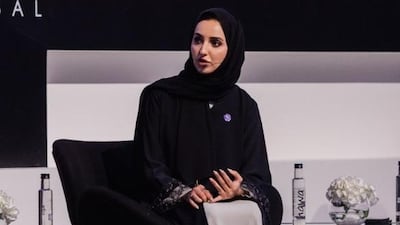Two months after announcing its own large language model to compete with the likes of Google and OpenAI, Abu Dhabi has released the source code, calling on developers in academia and the private sector to build new artificial intelligence applications.
The decision to freely give away AI technology to be modified by anyone with the coding skills is dividing the industry, and the move by the Technology Innovation Institute, Abu Dhabi's government-backed research centre, to make Falcon 40B open source will separate it from competitors.
Google and OpenAI, the two front runners in the burgeoning field, have maintained shut foundational models, expressing concern that LLMs could be manipulated to spread misinformation or other potentially dangerous content.
But proponents of open source software say keeping these systems closed unfairly curtails innovation and hampers their potential to improve the world.
“Making Falcon 40B open source represents a critical milestone in our commitment to fostering AI innovation,” said Faisal Al Bannai, secretary general of the Advanced Technology Research Council (ATRC), which houses TII.
“We are disrupting LLM access and enabling researchers and entrepreneurs to come up with the most innovative use cases.”
LLMs are neural networks trained on vast databases of text, typically from the content of the internet, including Wikipedia pages and articles, as is the case with OpenAI's ChatGPT, Google's Bard and TII's Falcon.
These foundational models are able to identify patterns and predict what text should come next, allowing them to be prompted by humans and, in turn, converse or compose with people working with these models to churn out all manner of text such as research papers, computer code or fiction.
“Abu Dhabi and the UAE is a research and development hub and today they are taking a big step in the AI domain,” Ebtesam Almazrouei, a director in the AI research lab at TII, said in an interview with The National.
"This step demonstrates Abu Dhabi's commitment to fostering collaboration across sectors and driving advancements in generative AI."
TII is calling for proposals from researchers, scientists and entrepreneurs keen to use the AI model to build applications and use cases.
Giving developers access to robust computational resources, which is typically cost prohibitive, can accelerate data analysis and new discoveries in fields such as energy, health care and sustainability, said Dr Almazrouei.
The most innovative concepts will be backed by VentureOne, the commercialisation arm of the ATRC, with free “training compute power” to scale them up and turned them into viable commercial products.

Facebook parent company Meta made headlines this month for also giving its AI technology away as open-source software.
“The platform that will win will be the open one,” Yann LeCun, Meta’s chief AI scientist, said in an interview with The New York Times last week.
Falcon, TII's LLM, has 40 billion parameters and is trained on one trillion tokens. In addition to making the model available, TII is providing access to the model’s weights, which will quickly reveal to developers the model's architecture.
Such a move promotes transparency and accountability, and supports further innovation and research in the field, Dr Almazrouei said.
TII's activities are a critical part of the UAE's efforts to diversify its economy from a reliance on oil exports and develop it into a knowledge-based one.
The UAE recently moved up five places to rank as the top Arab country and the 37th out of 166 countries on the UN Frontier Technologies Readiness Index 2023.


